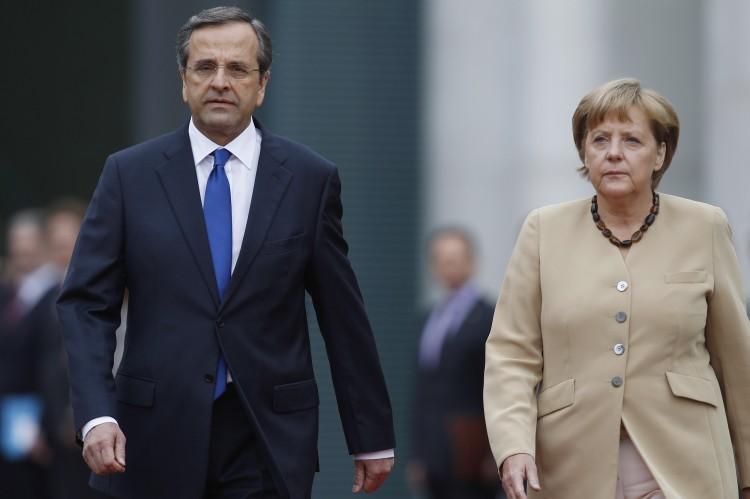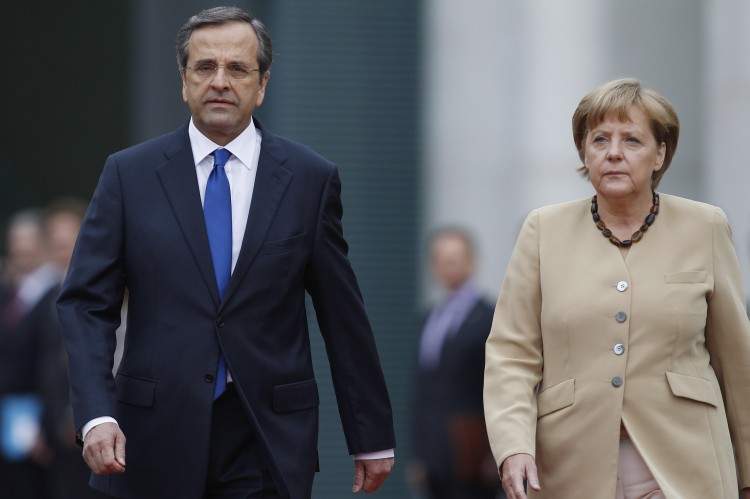Greek opposition parties and other groups will protest German Chancellor Angela Merkel’s first visit to Greece since the crisis started, accusing her of wanting to create a “German protectorate.”
Trade unions have called on workers to join a three-hour walkout in the Athens metropolitan area on Oct. 9, the day Merkel will arrives.
Protesters are expected to gather and rally in central Athens. Authorities, however, have announced a ban on public gatherings in most parts of central Athens over safety concerns.
The Coalition of the Radical Left (Syriza), the main opposition party and fiercely opposed to the government’s reform measures, has called for a rally in front of Parliament.
Efforts should be made to “put an end to the venomous measures prepared by the government and the troika representatives and overturn the anti-popular policy and its advocates,” Syriza’s party secretariat said in a statement Friday, reported Greek news agency AMNA.
The right-wing party of Independent Greeks, the country’s fifth largest party, announced a protest in front of the German Embassy in Athens.
The protest is “to reassert in front of the German Chancellor Angela Merkel our opposition to the transformation of our country into a German protectorate,” said the party’s spokesman, Christos Zois, in a statement.






